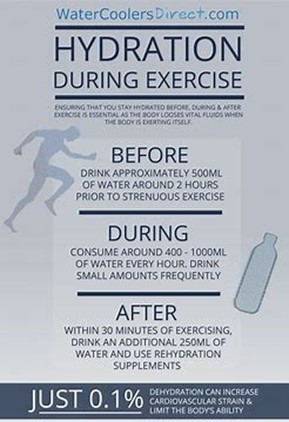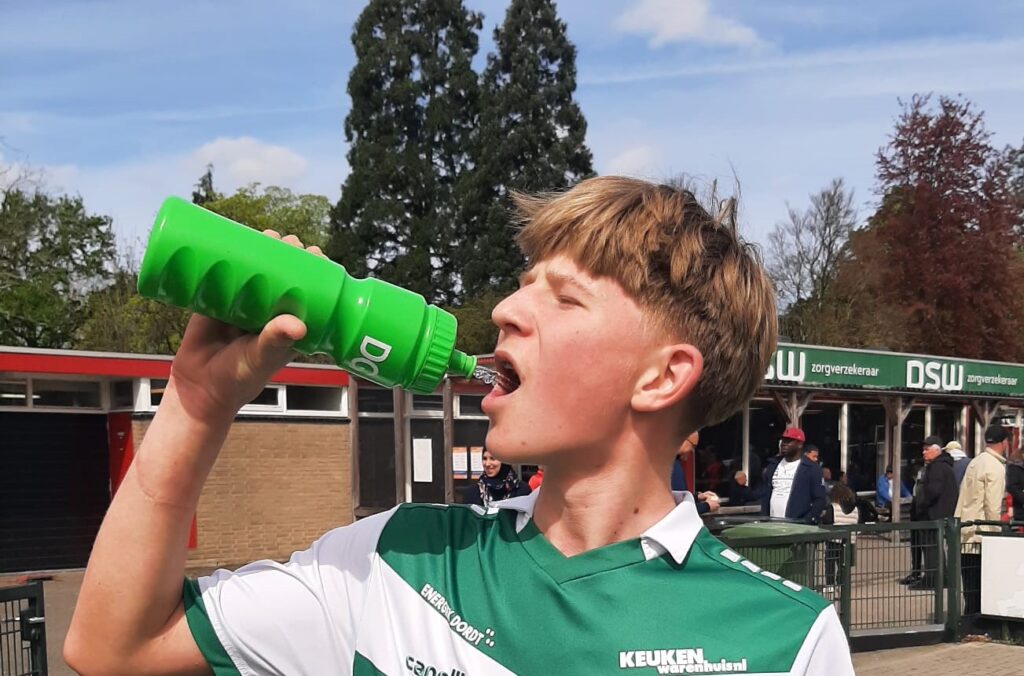Summer is coming and everyone talks about staying hydrated, especially people playing sport; and it is especially important for youth players participating in elite sport, such as in football academies.
I have seen many young players towards the end of games ‘coming down with cramps!’ Generally, they shouldn’t! And it can be avoided. Water yourself! Hydration.
Hydration in sport refers to maintaining adequate fluid balance in the body during physical activity. It involves replenishing fluids lost through sweating and other processes to ensure optimal performance and prevent dehydration.
Here are some key points about hydration in sports:
- Fluid Intake:
- Before Exercise: Proper hydration before starting any physical activity is essential. It helps prepare the body for exertion.
- During Exercise: Regularly drinking fluids during workouts or sports activities helps prevent dehydration. The amount needed varies based on factors like intensity, duration, and individual sweat rate.
- After Exercise: Rehydrating after physical activity helps restore fluid balance and aids in recovery.
- Electrolytes:
- Sodium, potassium, calcium, and other electrolytes play a crucial role in maintaining fluid balance.
- Electrolytes are lost through sweat, so it’s essential to replenish them during and after exercise.
- Signs of Dehydration:
- Thirst: Feeling thirsty indicates the need for fluid intake.
- Dark Urine: Dark yellow urine suggests dehydration.
- Fatigue: Dehydration can lead to reduced energy levels.
- Muscle Cramps: Lack of proper hydration may cause muscle cramps.
- Impact on Performance:
- Performance Decline: Dehydration negatively affects athletic performance, endurance, and concentration.
- Heat Regulation: Hydration helps regulate body temperature during intense exercise.
- Cognitive Function: Proper fluid balance supports mental focus.
Let’s dive into why it’s so essential:
- Optimal Athletic Performance:
- Dehydration can significantly impact your performance, affecting:
- Athletic performance: Proper hydration cushions joints and maintains flexibility and speed.
- Endurance: Hydration supports muscle function, including the heart muscles, and helps prevent cramps.
- Breathing: Moistening the air you inhale facilitates oxygen absorption through your lungs.
- Mood and concentration: Dehydration can cause headaches, irritability, and effect overall mood.
- Dehydration can significantly impact your performance, affecting:
- Electrolytes Matter:
- Electrolytes include minerals like potassium, calcium, magnesium, and phosphate.
- They play a vital role in muscle, organ, and joint function.
- Salt, a critical electrolyte, helps transmit electrical signals to muscles, including the heart.
- Electrolytes come from the food and beverages you consume.
- During sports, sweating and rapid breathing can speed up electrolyte loss, emphasizing the need to monitor intake.
- Dehydration Risks:
- Dehydration can sneak up on both adults and children, especially during exertion.
- It can lead to heat exhaustion, heatstroke, and muscle fatigue.
- Proper hydration helps prevent cramps, aids in thermoregulation, and maintains good muscle function.
- Hydrated athletes perform better and reduce the risk of injuries.
A simple way to check your hydration levels is to weigh yourself before, during and after training and games. If you lose 2-4 litres between weigh-ins, take on water to bring your levels up again. This is especially important on hot days.
Check out this simple Hydration Chart:

Remember, whether you’re a seasoned athlete or just starting out, staying hydrated is a fundamental aspect of achieving peak performance! 🏃♀️🚴♂️🥤
Here are some important references to study:
Sports and Hydration for Athletes: Q&A with a Dietitian | Johns Hopkins Medicine
The importance of hydration in sport | Athlete Hydration 101 – (scienceinsport.com)

